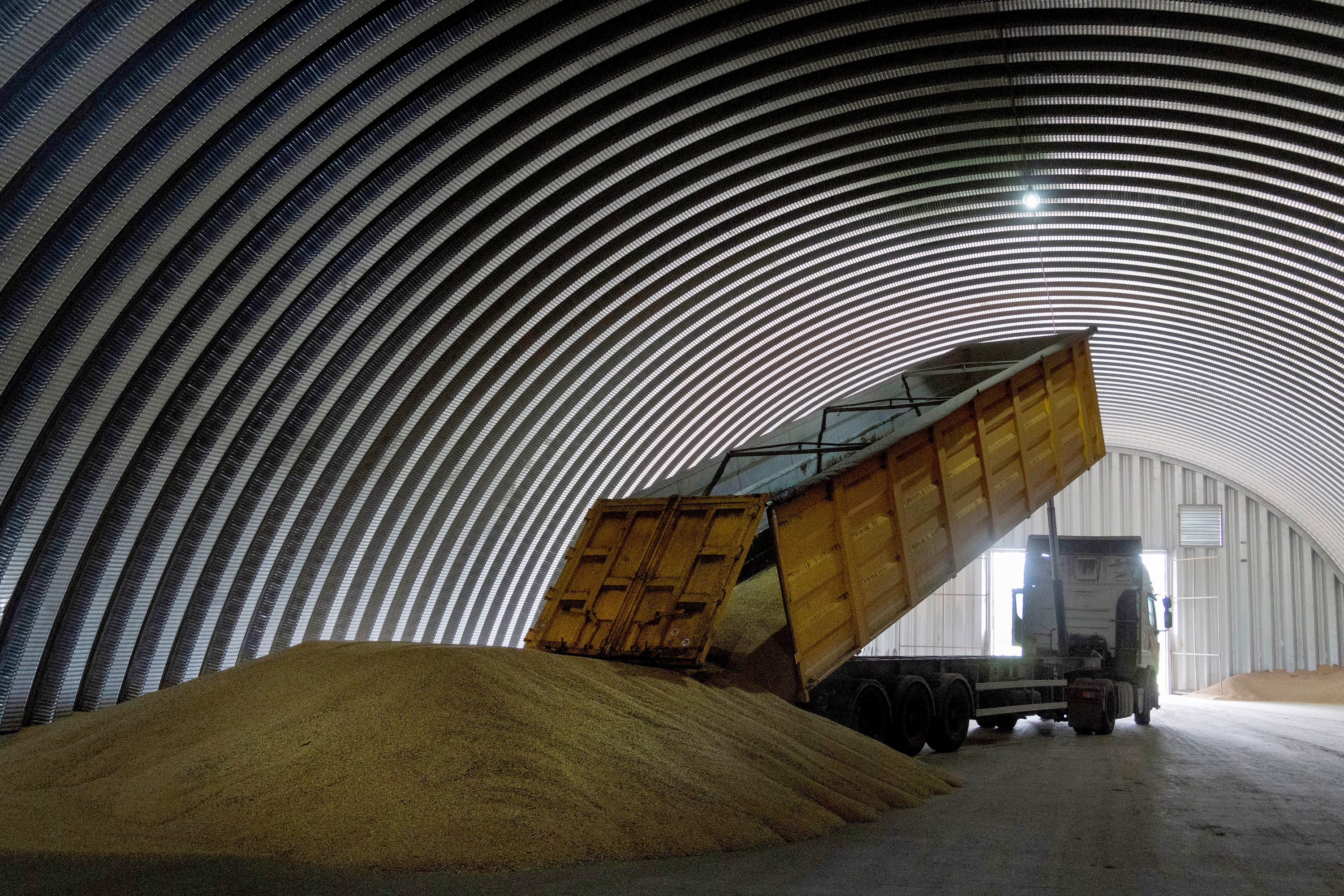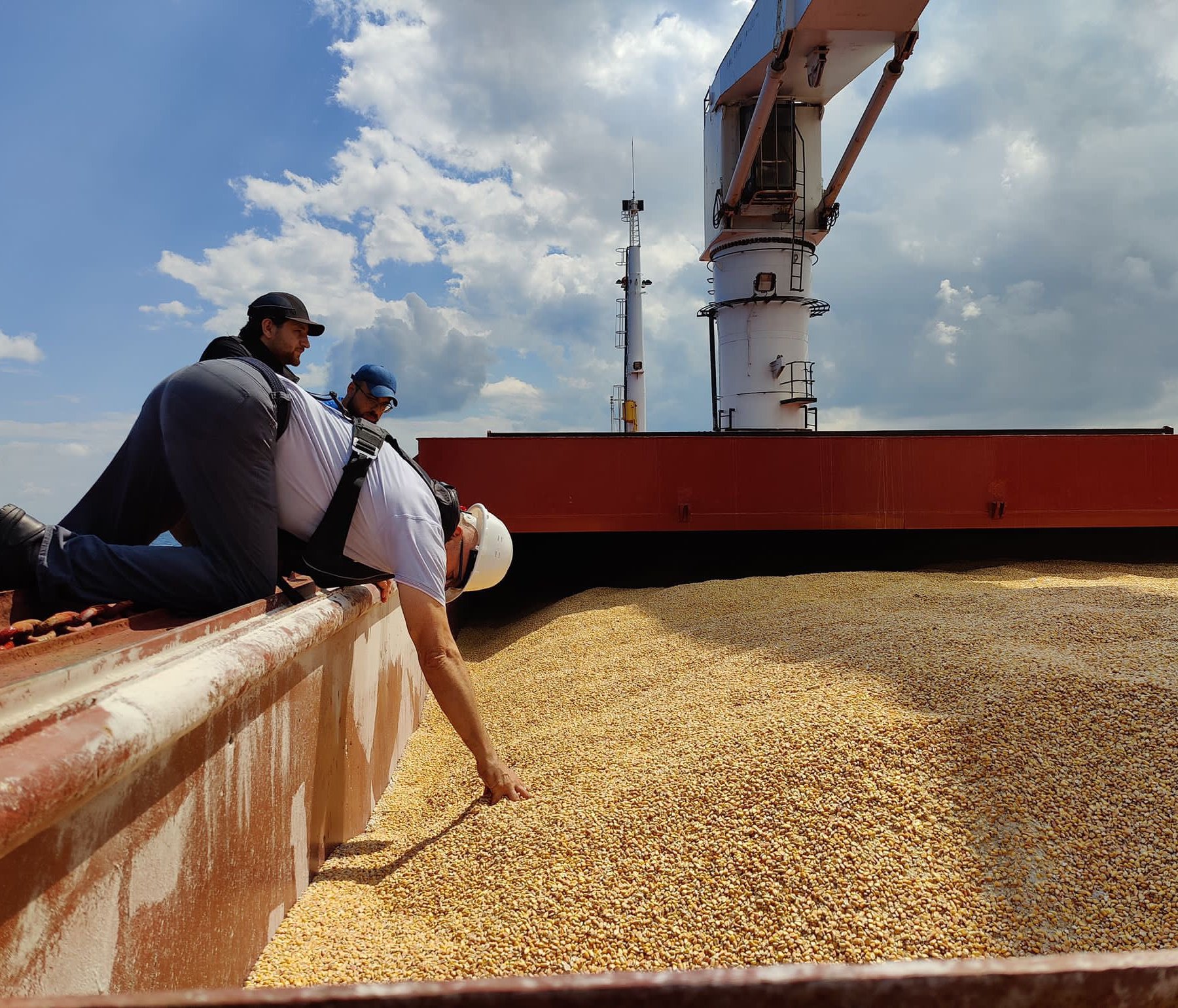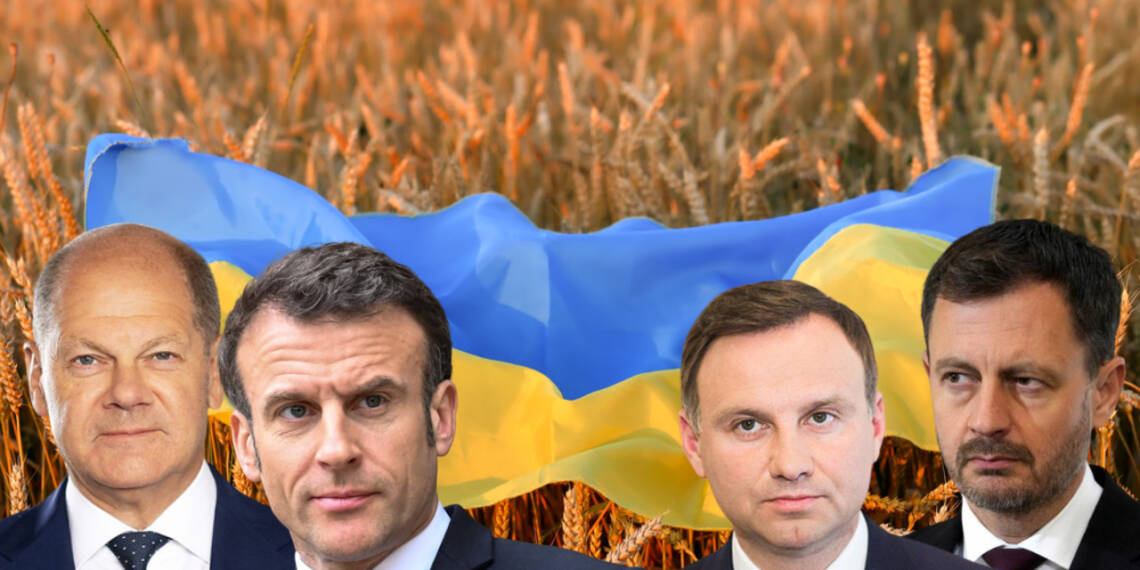Who would have thought two years ago that we would witness Europe vs. Europe on such a large scale? The passionate uprising across Eastern Europe sparked by Ukrainian stupidity is undermining the long-standing hegemony of the Franco-German powers. Is this their end of hegemony? We should watch out. It is no secret that Ukraine is a major global exporter of sunflower, maize, wheat, and barley.
When Russia invaded in February 2022, its naval vessels blockaded Ukraine’s ports, resulting in the trapping of around 20 million tonnes of grain. However, the blockade was resolved a few days later when a massive grain deal was struck with the help of the EU. Since then, there has been a significant influx of Ukrainian grain into Eastern Europe. However, this has created problems for farmers in the region who are struggling to sell their own produce. Romania, a major producer of corn and wheat within the European Union, has been hit the hardest, accounting for more than half of Ukraine’s land-based trade since the conflict began.
Eastern European nations heavily rely on agriculture to support their economies, and the situation is becoming increasingly dire. Despite this, the EU seems to be turning a blind eye to the problem, as Ukraine has been given assurances that grain imports will continue at all costs. As a result, Eastern European nations are now protesting against unfair trade practices.
The independent blockade
Several prominent players in Eastern Europe, including Romania, Poland, Slovakia, and Hungary, have decided to entirely block Ukrainian grain imports. They claim that this move is necessary to protect local farmers who have been struggling due to the influx of Ukrainian grain flooding the market. Logistical challenges in central Europe have led to the stockpiling of grain, causing prices to plummet and sparking protests from agricultural workers. The situation has become so dire that even Poland’s agricultural minister resigned.
Jarosław Kaczyński, the leader of Poland’s ruling Law and Justice Party (PiS), has declared that the Polish countryside is facing a “moment of crisis.” While Poland supports Ukraine, it felt compelled to take action to safeguard its farmers.

There are also rumors that Austria may join the blockade, which has baffled and angered both the EU and Ukraine. The EU Commission issued a statement expressing concern over Poland and Hungary’s ban on imports of grain and other agricultural products from Ukraine. The statement emphasized that trade policy is the exclusive competence of the EU and that unilateral actions are not acceptable. The EU has requested further information from the relevant authorities to assess the measures and stressed the importance of coordination and alignment of decisions within the EU during these challenging times.
Kyiv’s Ministry of Agrarian Policy expressed regret over the decision, describing it as “drastic and unilateral.” Ukrainian farmers, they argued, are already in a difficult situation due to Russia’s invasion.
Read More: EU’s reconfiguration of power takes it East
Ukraine has also protested the actions of the EU members, branding them discriminatory. The Ukrainian Agriculture Minister, Mykola Solsky, demanded the opening of transit as a vital component of any resolution, to be enacted without condition. Only then, he stated, could any further negotiations be considered.
The grave situation
The gravity of the situation cannot be underestimated, as the influx of inexpensive Ukrainian grain imports into Poland has rocked the local market, particularly in the southeast regions closest to the border with Ukraine.
The Polish government and the European Union remain oblivious to the dire situation,” declared Michał Kołodziejczak, a farmer and leader of the agricultural movement Agrounia. He insists that the authorities should only allow Ukrainian grain that is in transit to a final destination outside of Poland. Similar circumstances can be observed in neighboring countries such as Romania and Hungary.

The recent actions of farmers in Central and Eastern Europe are a clear indication of their rage and frustration. They called Henryk Kowalczyk, Poland’s minister of agriculture, a traitor and charged him with destroying their livelihoods as they threw eggs at him.
Read More: EU admits defeat to Russia…. hands over frozen assets
Thousands of farmers protested throughout Romania at the same time, using their tractors and trucks to obstruct traffic and border checkpoints. They pleaded with the European Commission to step in and stop the influx of cheap grain imports from Ukraine, which are exempt from customs duties until June 2024. These imports have wreaked havoc on the prices and sales of local producers, and the situation continues to worsen.
A Necessity
The Eastern European nations have resolved to tackle the issue at hand, bringing an end to a prolonged problem. It is an intriguing time we live in, as the balance of power has shifted remarkably.
Prior to the Ukraine conflict, the Western powers held the upper hand, with countries such as France, Germany, and Italy taking crucial decisions for the future of the European Union. Meanwhile, the Eastern nations, including Poland and Romania, followed in their footsteps without question.

However, a new uprising has emerged, disrupting the established power dynamics within the EU. The Central and Eastern European countries are no longer content to sit in the shadows; they are increasingly vocal about their roles and future aspirations. Therefore, the grains dispute is just the tip of the iceberg; the real tussle is for the dominance that Eastern Europe is currently winning.







